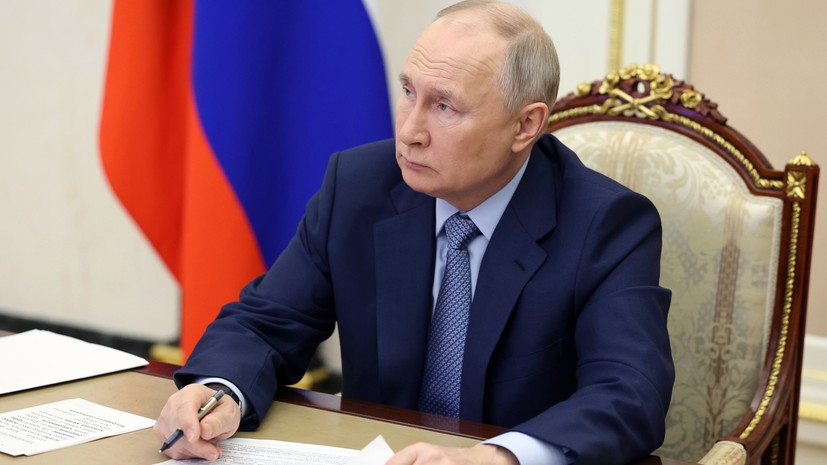At the beginning of this month, there was an increase in various social payments, which affected almost 20 million Russians. President Vladimir Putin recalled this on Wednesday, February 7. Financial assistance from the state was increased taking into account actual inflation for 2023 by 7.4%.
“More than 40 different payments have been indexed... This is (for example. -
RT
) maternity capital. For the first child it has now become 630 thousand rubles, for the second child - 833 thousand rubles,” the Russian leader noted during a meeting with the government.
In addition to maternity capital, indexation also affected other measures to support families with children, including a monthly allowance for child care up to 1.5 years. Along with this, cash payments to veterans, heroes of the Soviet Union and Russia, as well as people with disabilities were increased, which was discussed by the Minister of Labor and Social Protection of the Russian Federation Anton Kotyakov at a meeting with the president.
“Funds are already being transferred in increased amounts according to the usual delivery schedule. Traditionally, our delivery dates, Vladimir Vladimirovich, are from the 3rd to the 25th of every month. Accordingly, people are already receiving these funds,” Kotyakov reported to the head of state.
Minister of Labor and Social Protection of the Russian Federation Anton Kotyakov
RIA News
© Alexander Astafiev
Vladimir Putin recalled that since the beginning of the year a number of other decisions in the social sphere have come into effect in Russia. In particular, the minimum wage increased by 18.5% to 19,242 rubles. The initiative affected a total of almost 5 million people.
In addition, insurance pensions of 31 million unemployed citizens were indexed by 7.5%. The single benefit in connection with the birth and upbringing of a child increased by a similar amount. Today, over 400 thousand pregnant women and parents of almost 11 million children receive such support, noted Anton Kotyakov.
“At the same time, from January 1, on your instructions, a norm came into force that allows you to maintain child care benefits for up to 1.5 years, even if the mother went to work. This norm is being implemented and is already being applied today,” added the head of the Ministry of Labor.
The indexation of social payments carried out annually by the country's leadership is designed to compensate Russians for rising consumer prices, Svetlana Bessarab, a member of the State Duma Committee on Labor, Social Policy and Veterans Affairs, stated in a conversation with RT.
“Increasing benefits and other social assistance measures to the level of real inflation allows us to fully preserve the real incomes of the population. Such support for people in the form of timely indexation of payments clearly demonstrates that the West failed to tear our economy apart,” the deputy emphasized.
According to her, despite the unprecedented volume of sanctions, the country continues to develop successfully, which allows the state to continue to fully fulfill its obligations to citizens. In general, even in conditions of external pressure, Russia remains one of the most socially stable world powers, says economist and communications director at BitRiver Andrei Loboda.
“It is worth noting that the social vector of Russia’s development has noticeably increased in 2021. There is no longer any need to talk about a decline in the quality of life of pensioners and beneficiaries of various categories, since the indexation of some payments occurs even ahead of the inflation rate. In this sense, the country really managed to make a breakthrough,” said RT’s interlocutor.
Gettyimages.ru
© Maksim Konstantinov / SOPA Images / LightRocket
In total, in 2024, the authorities plan to allocate over 16 trillion rubles from the Social Fund to pay pensions, insurance benefits and provide other social support measures. This is almost 19% more than it was in 2023, according to materials from the Ministry of Labor.
An increase in financial assistance from the state has a positive effect on people’s solvency. This, in turn, stimulates consumer demand and contributes to additional economic growth, Pavel Sigal, first vice-president of the all-Russian public organization of small and medium-sized businesses “Opora Rossii”, told RT.
“Thus, the funds allocated for indexation continue to work in the economy. The fact that increases in benefits and various payments occur regularly can be called a very positive factor, because people feel supported by the state,” the expert added.

